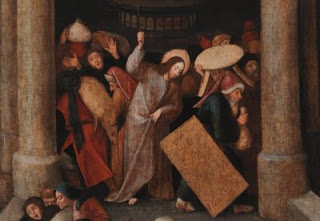Easter Sunday: March 31, 2024
Readings: Acts 10:34, 37–43; Psalm 118:1–2, 16–17, 22–23; Colossians 3:1–4; John 20:1–9
The Christian religion is a religion of life. It believes in eternal life. The resurrection of the dead is one of the fundamental and dogmatic truths of the Christian faith. The foundation for such a belief rests upon the person of Jesus Christ Himself. All four Gospels, Matthew, Mark, Luke and John speak vividly about Christ's passion, death and resurrection. Even though the resurrection narratives of Jesus are short and fast-moving and yet they are vibrant and fascinating. The urgency and immediacy are felt very much inviting the believers to be convinced that they too will partake in the resurrection of Jesus once and for all.
1. The empty tomb: The sign of Resurrection
The fundamental evidence of the resurrection of our Lord on Easter Sunday is the empty tomb. Mary Magdeline, Peter and John the disciples of Jesus were the first ones to witness the empty tomb where the dead body of Jesus was laid in the tomb just a couple of days ago. After the crucifixion, Jesus handed over Mary, his mother to be in the custody of his beloved disciple John. He was entrusted with the task of caring for his mother who was not only a widow but an orphan at the death of her only son. It must have been Mary the mother of Jesus, who told the disciples including John to watch over the tomb of Jesus as the circumstances which led to his death were not just ordinary. Certainly, there must have been fear that, the body of her son would be desecrated or stolen or anything unpleasant would happen.







